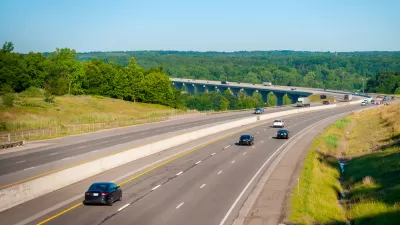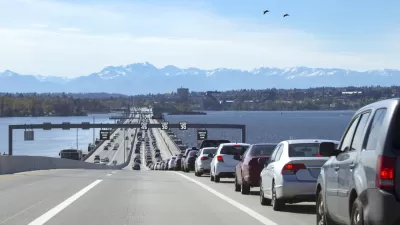Thanks to bipartisan cooperation and strong leadership from Gov. Kay Ivey, the Heart of Dixie passed it first fuel tax hike in 27 years. The 21 cents per gallon tax will increase by 10 cents in three increments by 2021 and then indexed to inflation.
Last July, Alabama had the ninth lowest gas tax in the nation, according to the Tax Foundation. The 21.09 cents per gallon gas tax (18 cents excise tax plus 3.09 cents in other state taxes/fees per API) hadn't been raised since a bruising political fight in 1992.
"Today, March 12, 2019, is a historic date for the state of Alabama," Gov. Kay Ivey stated proudly in a bill-signing ceremony (YouTube video) marking the state Senate passage of HB 2, otherwise known as the Rebuild Alabama Act, on a 28-6 earlier in the day.
"The vote marked a continuation of the bipartisan support for a plan Ivey and Republican legislative leaders called their top priority," reported Mike Cason of the Alabama Media Group.
The House had passed the legislation by a vote of 84-20 last week. Ivey called a special session to handle the issue and the legislation passed within the minimum five days.
The plan received bipartisan support in the 105-member House, with only two of the 28 Democrats voting against it. In the Senate, 22 of the 28 Republicans voted for the plan and six of the eight Democrats voted for it.
"Rep. Bill Poole, R-Tuscaloosa, sponsored the bills with the backing of House Speaker Mac McCutcheon, R-Monrovia, who said he had worked on the issue for five years," wrote Cason in a second article on the bill's passage. "Poole said Alabama’s funding for roads is the lowest in the southeast."
While the vote was bipartisan, the Alabama Republican Party executive committee launched a petition effort to defeat the tax hike while it was in the House. "Only 18 of the 77 House Republicans voted against the tax," added Cason.
House Minority Leader Anthony Daniels, D-Huntsville, supported the plan and said the result shows the Democrats can work effectively with Ivey and the Republican majority in the Legislature.
On Sept. 1, the gas and diesel taxes will increase by six cents, followed by two 2-cent hikes on Oct. 1, 2020, and Oct. 1, 2021. Indexing for inflation begins October 1, 2023, "with the increase or decrease of the excise tax rate not exceeding $.01 per gallon."
Revenues split between state, counties, cities and Port of Mobile
The 10-cent per gallon increase will raise an estimated $320 million a year to fund road construction and maintenance. The Alabama Department of Transportation will get 67 percent of the money, counties will get 25 percent and cities 8 percent.
About $12 million a year will be allocated to a bond issue to widen and deepen the shipping channel in the port of Mobile to increase its capacity for cargo traffic. Federal funds will pay for 75 percent of that project.
EV and hybrid vehicle fees
Two other fees were included in the bill: $200 per year electric vehicle fee and a $100 annual hybrid fee, effective New Years Day, 2020. "It will then increase by $3 every four years starting in 2023," reports Alex Stokes for WHNT News 19. As in other states, these fees are meant to ensure that operators of vehicles that pay little if any fuel taxes also help maintain roads, but the bill goes a step further.
But $50 of the EV fee (and $25 of the hybrid fee) will go to EV infrastructure, such as electric chargers...but disappears and the registration fee drops to $150 once EVs make up 4% of all cars in the state.
Hat tip to Eleanor Lamb of Transport Topics.
FULL STORY: Gov. Kay Ivey signs Alabama gas tax hike into law

Alabama: Trump Terminates Settlements for Black Communities Harmed By Raw Sewage
Trump deemed the landmark civil rights agreement “illegal DEI and environmental justice policy.”

Planetizen Federal Action Tracker
A weekly monitor of how Trump’s orders and actions are impacting planners and planning in America.

The 120 Year Old Tiny Home Villages That Sheltered San Francisco’s Earthquake Refugees
More than a century ago, San Francisco mobilized to house thousands of residents displaced by the 1906 earthquake. Could their strategy offer a model for the present?

In Both Crashes and Crime, Public Transportation is Far Safer than Driving
Contrary to popular assumptions, public transportation has far lower crash and crime rates than automobile travel. For safer communities, improve and encourage transit travel.

Report: Zoning Reforms Should Complement Nashville’s Ambitious Transit Plan
Without reform, restrictive zoning codes will limit the impact of the city’s planned transit expansion and could exclude some of the residents who depend on transit the most.

Judge Orders Release of Frozen IRA, IIJA Funding
The decision is a victory for environmental groups who charged that freezing funds for critical infrastructure and disaster response programs caused “real and irreparable harm” to communities.
Urban Design for Planners 1: Software Tools
This six-course series explores essential urban design concepts using open source software and equips planners with the tools they need to participate fully in the urban design process.
Planning for Universal Design
Learn the tools for implementing Universal Design in planning regulations.
Clanton & Associates, Inc.
Jessamine County Fiscal Court
Institute for Housing and Urban Development Studies (IHS)
City of Grandview
Harvard GSD Executive Education
Toledo-Lucas County Plan Commissions
Salt Lake City
NYU Wagner Graduate School of Public Service





























